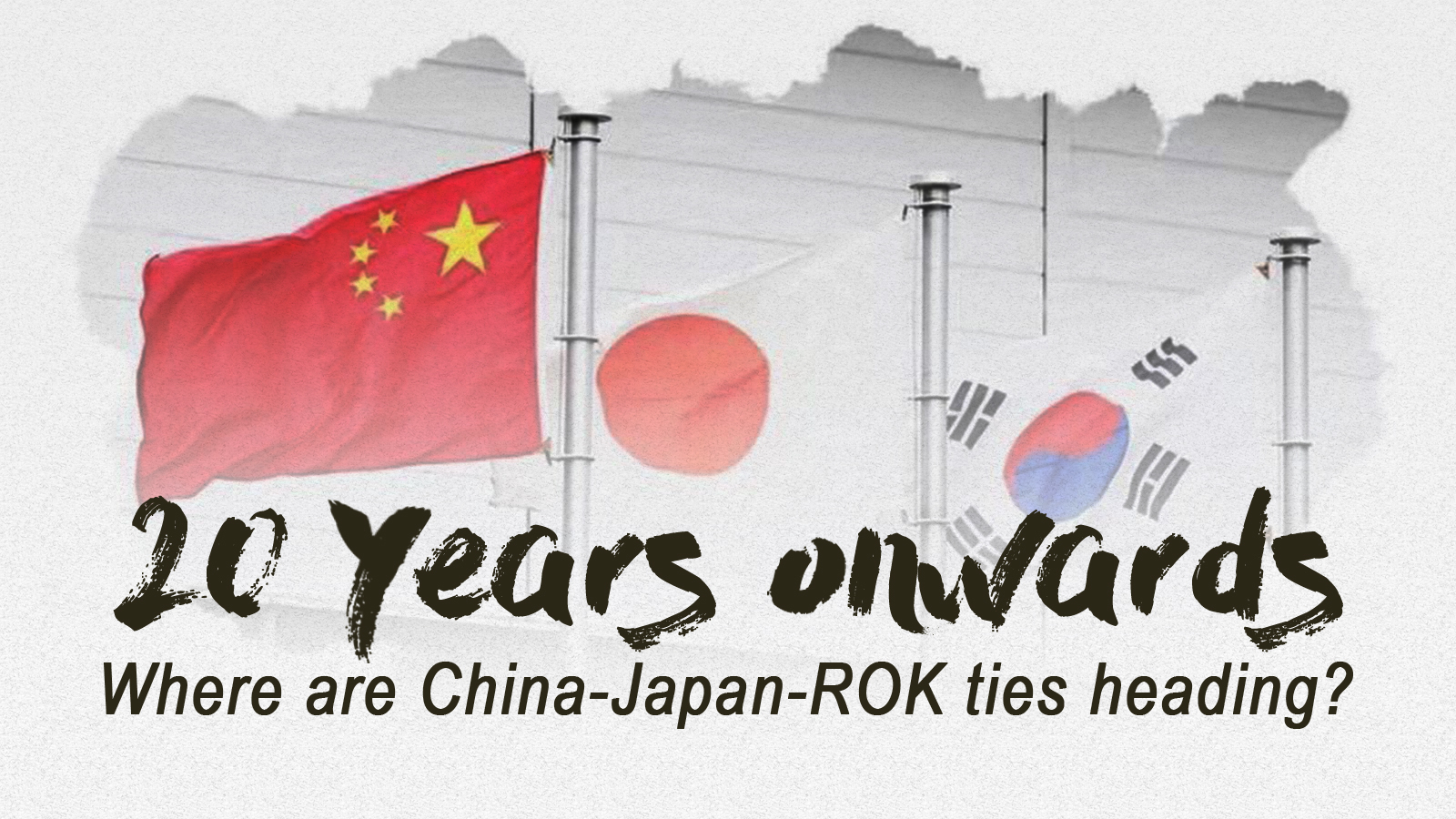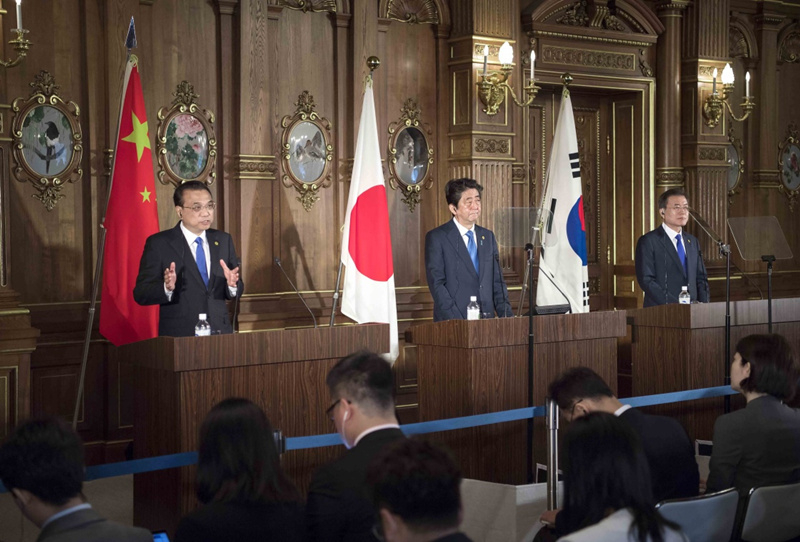02:24

This year marks the 20th anniversary of China-Japan-ROK cooperation.
On an ordinary November morning in 1999, the leaders of China, Japan and Republic of Korea (ROK), at a breakfast meeting on the sidelines of the 10+3 Summit in Manila, ushered in a new era of trilateral cooperation between the East Asian neighbors that share a long history of weal and woe.
The past two decades years of trilateral cooperation have yielded fruitful outcomes in trade, economy, culture, education, technology, innovation and high-level exchanges. An all-dimensional cooperation system with the leaders' meeting as the core and 21 ministerial-level meetings and over 50 working-level mechanism as the pillar, has been established, with cooperation being carried out in over 30 fields.
Economy and trade cooperation
With trilateral trade exceeding 720 billion U.S. dollars last year, China, Japan and the ROK have a combined GDP of over 20.198 trillion U.S. dollars that accounts for over one-fifth of global GDP.
The three countries have signed a trilateral investment agreement and held 16 rounds of free trade agreement (FTA) negotiations so far, working jointly for trade and investment liberalization and facilitation.
Grasping an important opportunity of speeding up free trade negotiations, the Regional Comprehensive Economic Partnership (RCEP), a mega trade pact involving the three countries, has also made positive progress.
"A trend for future cooperation is 'China-Japan-ROK+X', that is to say, the three countries will strengthen cooperation in the fourth and fifth markets. For example, they will make use of their respective advantages and resources to promote connectivity on the Belt and Road," said Jiang Ruiping, former vice president of China Foreign Affairs University.
Social and cultural exchanges
At the First Trilateral Culture Ministers' Meeting held in Nantong, China in 2007, the three countries put in place a regular dialogue mechanism of cultural ministers, providing an important platform to constantly promote tripartite cultural exchanges and cooperation.
With over 31 million cross-border visits recorded last year, they reached consensus on major cooperation areas such as expanding and enhancing cultural and art exchanges, promoting tangible and intangible heritage protection, boosting exchanges of the creative industry and deepening educational exchanges among youth.
Japan and the ROK have notable strengths in information, big data and other high tech sectors. Meanwhile, China has a huge market and latecomer advantage in 5G and the internet. "China is willing to share the market and development opportunities with Japan and the ROK," Chinese Vice Foreign Minister Luo Zhaohui said.
In terms of differences, Luo said it is natural that the three countries may also have disputes over history and territorial waters. What is important is that all the three countries should properly manage these differences, make the pie of cooperation bigger and guard against the interference of external factors.
The upcoming 8th China-Japan-ROK leaders' meeting to be held in China's southwestern city of Chengdu on December 24 this week will chart the course to further enhance the three countries' political mutual trust, lift the level of economic and trade cooperation, and promote all-round development of mutually beneficial cooperation.

Chinese Premier Li Keqiang (L), Japanese Prime Minister Shinzo Abe (C) and President of the Republic of Korea (ROK) Moon Jae-in (R) attend a press conference after the seventh China-Japan-ROK leaders' meeting in Tokyo, Japan, May 9, 2018. /Photo via Chinese government website
Chinese Premier Li Keqiang (L), Japanese Prime Minister Shinzo Abe (C) and President of the Republic of Korea (ROK) Moon Jae-in (R) attend a press conference after the seventh China-Japan-ROK leaders' meeting in Tokyo, Japan, May 9, 2018. /Photo via Chinese government website
Against the background of downward pressure on the world economy and rising trade protectionism and unilateralism, China, Japan and the ROK, as important Asian countries and three major economies in East Asia, shoulder important responsibilities in safeguarding regional peace and stability and promoting world development and prosperity.
(Graphics by Li Jingjie)